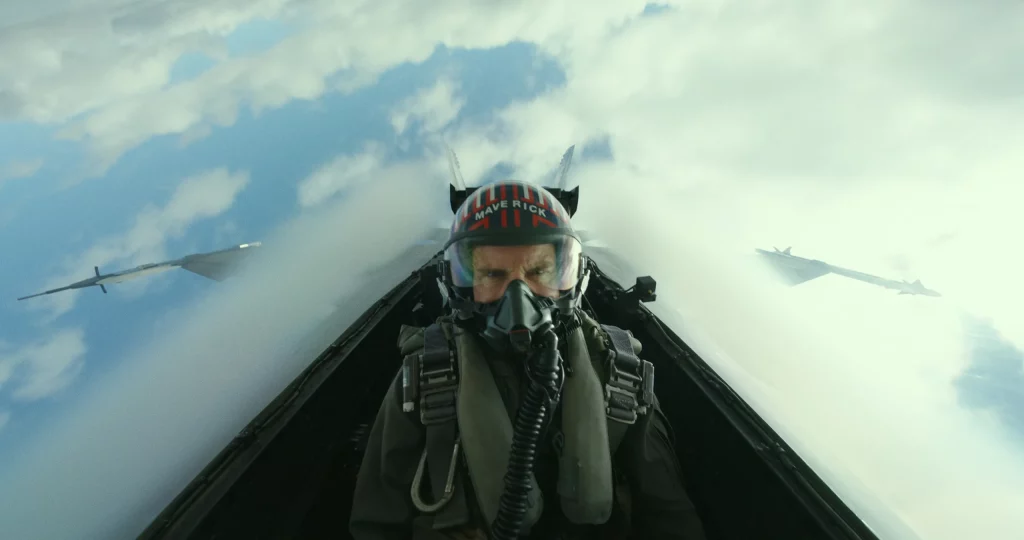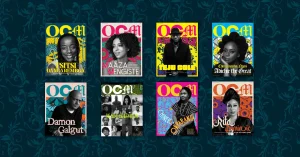I wrote this months ago and forgot to post it.
My summer started with Doctor Strange: Multiverse of Madness, a film that I find below my expectation, even after two viewings—first in the cinema, then on Disney+. My problems were two: the film’s dramatization of the multiverse is underwhelming and the film’s scope itself is too regular to deserve the title. A friend told me that Marvel needed to lower expectations so it can raise it again, and it sounded like a good excuse, until I remembered that Spiderman: No Way Home, a favourite from last year, felt bigger, larger than reality, and did more with its premise. But Multiverse of Madness is about magic and I like magic, and as Scarlet Witch blasted bolts through the Kamar-Taj defences, as Doctor Strange looked very small in comparison, I thought: This is no longer a game for your regular superheroes—and in Tyrion’s voice—it’s the great game now.
What Multiverse of Madness’ unconvincing multiverse did for me was open me to seeing another film that—I’d gleaned from a review—did something similar: Everything Everywhere All at Once. I like Michelle Yeoh; I’ve liked her from the kung fu films of our teenage years to Crazy Rich Asians; but I did not plan to see Everything Everywhere All at Once. Then that review, and Multiverse disappointing, and I hurled myself to it, and, boy, was I impressed. It didn’t only portray what a living multiverse should look like, it did it with emotions. Plus the added pleasure of seeing Yeoh kick ass as a regular superhero. Ah. It’s a looong way from years back when I avoided superhero films because they were empty spectacles—the spectacles not enough and the emptiness too much.
Emptiness would be my summary of Jurassic World: Dominion. Honesty, as I write this, I do not remember what the plot was; all I remember are Laura Dern and that it’s about dinosaurs. I’d suspected that it would be yet another downgrade in the rebooted franchise—the first, Jurassic World, was enjoyable, the second, Jurassic World: Fallen Kingdom, was a hurtful waste of time—and yet I still saw it. Now I want my money back.
Days later, or before, whatever, it doesn’t matter, the films were forgettable, but days later or before, I saw Thor: Love and Thunder. I cannot call it a waste of time but I could have done without seeing it and still not feel like I missed anything. I would say that Marvel is plunging at this point but, boy, I saw the Black Panther: Wakanda Forever trailer, with Tems’ cover of “No Woman, No Cry,” and my heart swelled. May it save the year. (Again, I wrote this months ago.)
(This is a good time to publicly complain about a subgenre of superheroes that sometimes irritates me: the Regular Superhero. I mean Spiderman, Antman, America Chavez, even Black Widow, and, of course, Hawkeye. All those ones who don’t have special powers. Sorry, I prefer my superheroes to be super—Jean Grey, Captain Marvel, Thor, Aquaman—to have actual power, something shooting out of their hands or eyes or chest or wherever, or at least some immortality. And I also prefer their super-ness to be magical, not technological: I’m looking at you, Ironman, Batman, and Captain America. I especially don’t want them symbolizing that Everybody can be a superhero—no, this is entertainment, everybody cannot be a superhero; that’s why we had a million superheroes fighting Thanos in Avengers: Infinity War and Endgame and yet only two actual superheroes, Captain Marvel and Scarlet Witch, could match him. Too much democracy in super-ness lowers the appeal, like, why the hell is Awkwafina’s character in Shang Chi and the Legend of the Ten Rings now a “superhero”?! Like, why? Still, I like most of them. Actually, what I like is not Spiderman but Tom Holland-as-Spiderman.)
It occurs to me that there’s a link between my dislike of Hollywood’s democratic superheroism and my love of Chinese kung fu heroes. The kung fu masters are special because no one else knows the Sinking Palm of Rose Wine or whichever poetic name their elusive skills go by. If everybody knew the Jinx Palm from Evil Cult or the Yihua Jade Swapping Palm from Handsome Siblings, then everybody would fight and there’d be no film. It’s entertainment. The entertainment is in the disbalance of power. Entertain us.
And so I was entertained by Who Rules the World, a Chinese historical fantasy drama on Netflix in which the poetically named ultimate skill is the Sacred Jade Moon. The series follows a man and a woman, who are considered the best two martial artists in the world, as they go from friendly rivals to lovers, all the while hiding their identities as royalty. The backdrop: six states of an empire battle for supremacy as the Imperial Family grows weaker.
Generally, I like C-dramas that mix historical fantasy, martial arts, and politics. I love this one almost as much as I did Handsome Siblings, which did not have the political angle. I like the immersive storytelling, which can get unwieldy and really needs more editing. By the way, why do C-dramas have such bad, discouraging titles?
Anyway, I rewatched a kung fu film I first watched as a child: Crippled Avengers, in which a powerful man, in vengeance for his son whose arms were cut off as a child and are now replaced by metal fighter arms, damages four other young men who oppose his mistreatment of people: blinding one, deafening one, cutting off the third’s legs, torturing the last into madness. The four men befriend one another and find a master who teaches them skills to defeat the powerful man—finish. A similar film I liked, The Kid with the Golden Arm, similar because it features the cast of Crippled Avengers, is a story of martial arts reputations.
Speaking of reputation, I finally started Mad Men, which critics say is one of the best TV series ever. I like Jon Hamm as Don Draper and “like” is not accurate enough. But, six episodes in, I was only watching for the office scenes. My interest fizzled out.
I am generally dismissive of action flicks, but my favourite film this summer, by far, is probably Top Gun: Maverick. I hadn’t planned to watch it—I wasn’t a Tom Cruise fan and had never seen any of the Mission: Impossible films. But I read that Lady Gaga did the theme song, so I played it, “Hold My Hand,” and fell for the first 8 seconds and decided to watch the film. When I am unsure what to expect from a film, when it is a film I am unsure of, I try not to read reviews. But I did come across something about the film being about jets. Watching it was an unexpected stimulation: the jets, the score, the emotions—everything climbed and I felt bloated by thrill. I went back and watched the original Top Gun, from 1986, and 53 minutes in, I am hooked to the background music; it builds beautifully and, Shazam, it’s called “Take My Breath Away,” by Berlin. Turns out the song anchored the original film, the film’s concept was built around it. I don’t recommend action films but I encourage anyone to watch these two, in whichever order. They play also like suppers of sexiness. And now I’m planning to watch the Mission: Impossible films.
My struggle with action films is perhaps best exemplified by my ambivalence to the 007 films. Before last year, the most interesting thing about James Bond, for me, was the theme music. I liked Adele’s “Skyfall” and Sam Smith’s “Spectre” and, of course, Billie Eilish’s “No Time to Die.” It started with the song, again. Heard it, went to the cinema, absolutely loved the film and Daniel Craig, went back and watched three more with him. Funny thing: I can’t tell which ones I actually watched, I just know I watched three of them.
But I can tell you all about the Indian films. We already know this but it bears repeating: Bollywood has something that Hollywood hasn’t and that Nollywood has the potential for but not the artistic ambition. Some of their films can be cringe-worthy but they are all colour and music and rituals and epic, epic feeling. Take RRR, in which two men of superhuman strength embark on opposing missions, become friends, then mortal enemies, then friends who take on the British colonial government, but not before a fine dance sequence.
The duality of destiny is again at the centre of Baahubali 1 and 2, two films I didn’t want to end. Two crown princes, extraordinary in skill and charismatic in bearing, compete for the throne—their story rendered in flashback as the titular prince’s son finds himself confronting a family past he isn’t aware of. I loved it for the politics, the war scenes, and the romances, but it really is about two men bound to a path they initially had no say in.
The romantic crown jewel of my summer, however, is Jodhaa Akbar. It stars Hrithik Roshan as the Mughal emperor Akbar the Great, as he falls in love with a Hindu princess while holding the empire. I first read about Akbar the Great in JSS2, by which time I’d devoured history books and documentaries on Africa, Europe, and Asia, and I remembered faint details, top of which is that they were Muslim conquerors in Hindu land. The film rekindled my interest in the Mughal Empire and I went to the library and picked a book I am not sure I will finish. It is a biography titled Empress: The Astonishing Reign of Nur Jahan, by Ruby Lal. I tried reading up on the film itself but all accounts say that the woman, Jodhaa Akbar, did not exist.
Exist or not, I took away a beautiful feeling for which I revisit it often. There are very simple scenes I will not forget in a hurry—Akbar following his wife’s beautiful singing and watching her worship. (This might have stood out to me given that I have read the Bhagavad Gita and started the Srimad Bhagavatam, both books owned by my mother who was fascinated by Hinduism.) But there is one transcendent scene: the wedding, where after a group of Sufi singers enrapture the audience, Akbar gets up, pulled, and dances with them. My first thought watching that scene: I want to write a story like this.
If you do not see Nollywood films here, it is because I decided to take them a bit more seriously this year when Open Country Mag expanded into film and TV. Most things I think will be on the site. But here’s one series that isn’t there yet but will be: Lekki Wives. I’d watched it when it first came out and fell in love with the story it was telling, how it took the lives of the five central women seriously, their quirks and all. I rewatched it, struck afresh by its daring, even if lightly preachy, rubs. Importantly, this series shows a lesbian relationship that isn’t dehumanizing. It shows a man living with disability in a way that is most natural. It takes nothing away from its characters, and, in so doing, captures that hustling bent of Nigerianness.



